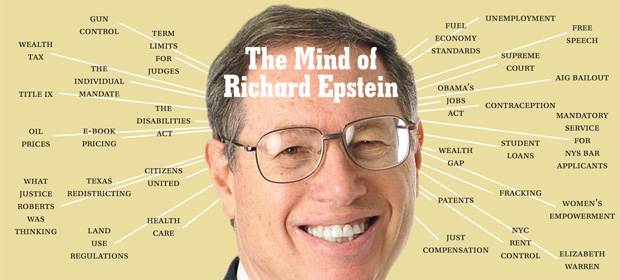Roberts Court embraces radical anti-labor interpretation of the takings clause

Richard “500 people will die from COVID-19 in the US” Epstein made his bones in the conservative legal community with a genuinely nutty book asserting that the takings clause, as originally understood, made most of the 20th century welfare state unconstitutional. Today, the most reactionary Supreme Court in a century embraced a major part of it in its latest attack on organized labor:
In the 1960s, the United Farm Workers began demanding better pay and working conditions for California’s agricultural workers, who were subject to egregious exploitation and abuse. Led by César Chávez and Dolores Huerta, the union’s campaign culminated in the passage of the California Agricultural Labor Relations Act. Among other guarantees, this landmark law granted union organizers limited, temporary access to agricultural workplaces to speak with laborers. Businesses challenged the act as a violation of their property rights, but in 1976, the U.S. Supreme Court dismissed the case “for want of a substantial federal question.”
The Supreme Court of 2021—stacked, as it is, with six conservative Republican-appointed justices—sees things differently. On Wednesday, the court’s conservative supermajority held that California’s law violates the Fifth Amendment, which bars the taking of private property for public use “without just compensation.” Remarkably, the majority held that the law constitutes a “per se taking”—not a mere regulation, but an “appropriation” of property that flouts the owners’ “right to exclude.” The court’s 6–3 decision in Cedar Point Nursery v. Hassid is thus a crushing blow to organized labor, which often relies on workplace access to safeguard workers’ rights. It also undermines the broader legal framework that permits the government to impose all manner of regulations on private property, including workplace safety laws and nondiscrimination requirements. With Cedar Point, the Supreme Court has handed business owners a loaded gun to aim at every regulation they oppose.
Before we get to the devastating impact of Wednesday’s decision, some background: The Supreme Court has identified two types of “takings” under the Fifth Amendment, and deemed one much worse than the other. This distinction matters a great deal in Cedar Point. First, there are “per se” takings, which involve a major intrusion of private property. Historically, only the most burdensome laws—those that deprive property of “all economically beneficial or productive use” or constitute a “permanent physical occupation”—qualify as per se taking. In those situations, a property owner can automatically demand compensation or, if denied payment, block the law. Second, there are “regulatory takings,” which involve more minor restrictions on property, like zoning ordinances. It’s much harder to fight a regulatory taking in court, and even if you win, the government may have more flexibility in providing compensation.
In addition to being a silly reading of the constitutional text with extremely negative policy implications, this decision is the latest example that “originalism” does no work in explaining the decisions of the Roberts Court. From any conceivable originalist perspective, the idea of a per se taking that does not involve the permanent expropriation of property is nonsensical:
None of this is required by the original public meaning of the Constitution. Not even close. The Fifth Amendment’s framers understood the takings clause to apply only to direct appropriation of physical property. They carried on a long tradition, rooted in English common law and colonial practice, of authorizing entry onto private property for public purposes. The “right to exclude” that Roberts conjured in Cedar Point is not a constitutional principle but a policy judgment thinly veiled in legalese. It is the product of the conservative legal movement’s relentless demands for deregulation by judicial fiat—for a return to the era when federal courts struck down health, safety, and economic policies on the basis of their own political preferences.
As Stern says, the “optimistic” scenario is that this rule will apply only in the context of the Court’s consuming opposition to organized labor. But businesses will push to apply the logic to other areas and they might well succeed.


